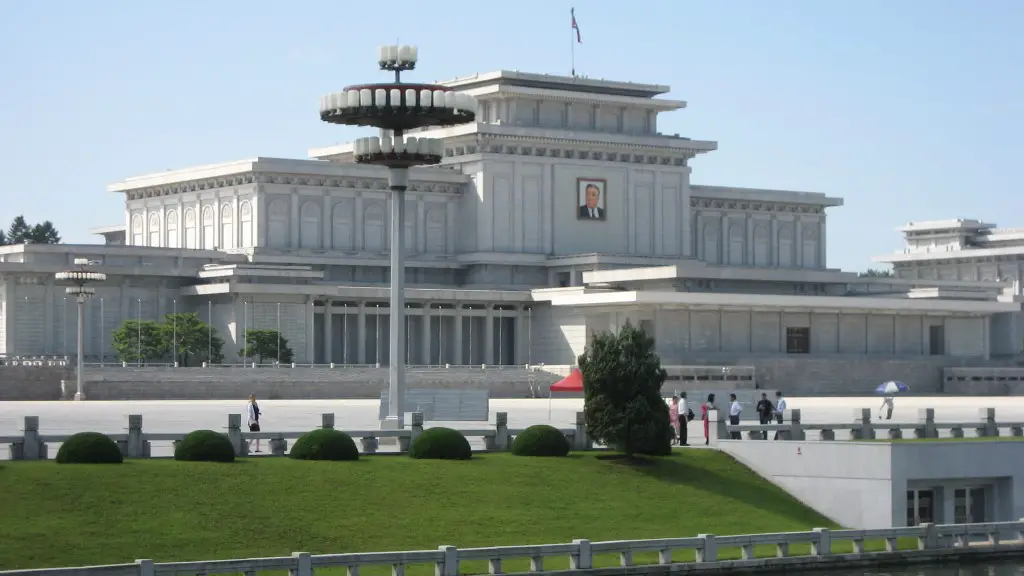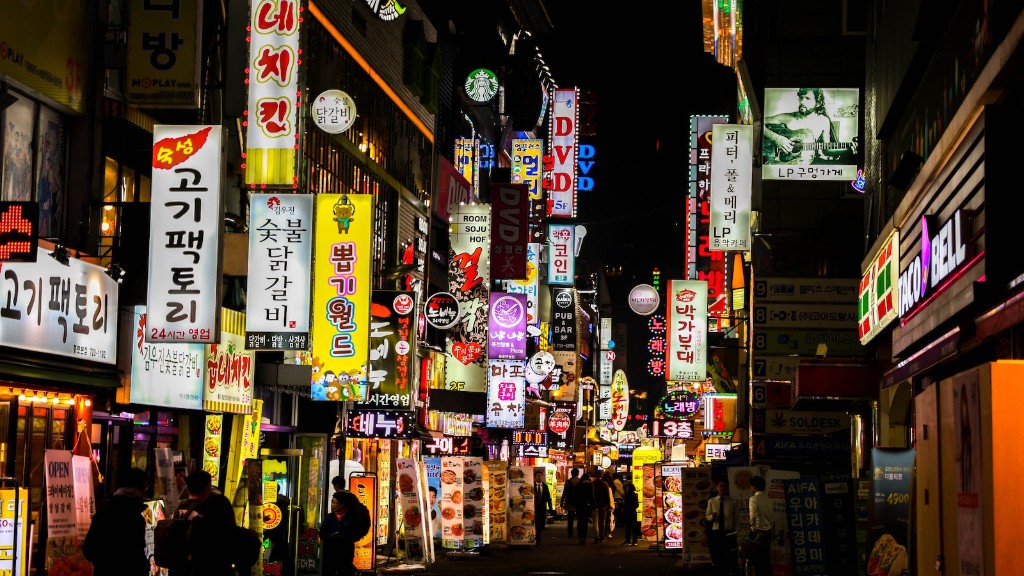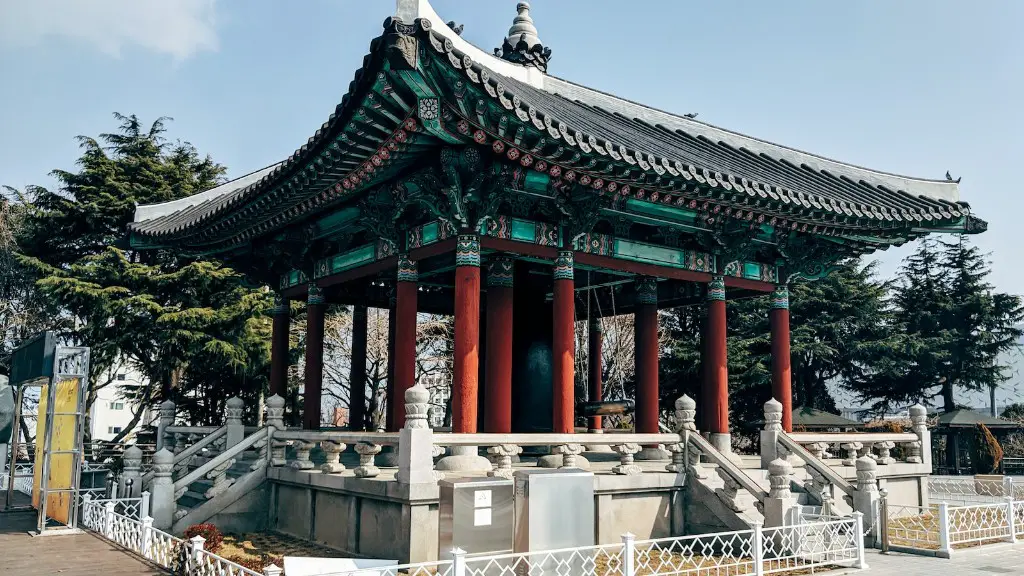The Korean Peninsula is often in the news because of the nuclear and military build-up of North Korea and its growing isolation from the international community. While South Korea has a successful free-market economy and is home to some of the world’s biggest global companies, its northern neighbor is a totalitarian state with one of the world’s most repressive governments. Is South Korea worried about North Korea and its nuclear ambitions?
The majority of South Koreans have grown up knowing their nation is perpetually in the shadow of its northern neighbor and the uncertainty of the situation has become the “new normal” for those living on the peninsula. The North’s increasingly belligerent rhetoric and its disputed nuclear tests have caused shock, fear and even some fatigue among the South Koreans. With each new development, the South Korean government has attempted to downplay the situation, with President Moon Jae-in praising the North’s commitment to denuclearization and diplomatic dialogue.
Though South Koreans have long had to be alert to the possibility of future instability, the focus on the North has, in some ways, become all-consuming for many in the South. Experts suggest there is growing public skepticism about the North’s commitment to denuclearization, especially in light of reports that the regime is continuing to pursue its nuclear program. South Koreans also worry about the prospect of conflict in the region and have vocally opposed any attempts by the US or other powers to intervene in the context of such a crisis.
However, the majority of South Koreans take a realistic approach towards the North. They recognize that the only way the region can eventually get some form of stability and peace is through constructive dialogue between the North and South. South Koreans remain open to the idea of reunification and believe that, given enough time, it could be an achievable goal. Despite the rhetoric of hostility, the two Koreas can also cooperate on many levels and exchanges of people, culture and goods are allowed across the border.
South Koreans also realize that the situation with North Korea is ultimately out of their control and that it is up to the North Korean government to decide whether it is willing to make changes to its behavior. South Korean officials have requested that the international community take a cautious and diplomatic approach, out of fear that any military action could jeopardize their country’s security and well-being. South Korean officials are largely opposed to any sanctions or other punitive measures against their northern neighbor.
Economic Implications
The South Korean economy has long been affected by the tensions on the Korean peninsula, but the recent emergence of North Korea as a nuclear power and the possibility of further confrontation has exacerbated the economic risks associated with the situation. South Korean businesses and corporations have largely refrained from investing in North Korea, despite the potential benefits of doing so. Additionally, South Korea is aware of the potential damage that could be inflicted by a conflict on the Korean Peninsula and is therefore keen to minimize the risks of war.
South Korea’s government has attempted to insulate its economy from the North, with measures such as sanctions, tariffs and other restrictions on trade, but it has also been attempting to improve ties with the North in order to reduce tensions, improve the quality of life of the North Korean population and also help to reduce the risk of conflict. The South Korean government is supporting various other reconciliation efforts, such as sports and cultural exchanges, and is also supporting joint business ventures and investments across the border.
South Korea is also searching for economic opportunities beyond the peninsula and is attempting to integrate itself into the global economy. This includes improving the investment climate, developing infrastructure and promoting South Korean products and services in foreign markets.
Regional Implications
The tensions on the Korean Peninsula have had a significant impact on the region, particularly on countries that consider the situation a threat to their own interests. That includes South Korea’s traditional ally, the US, which has reaffirmed its commitment to protect Seoul from any external aggression. Japan, which is a close US ally, also has a keen interest in the situation, given its proximity to North Korea and its long-standing fear of nuclear weapons.
China is also an important player in the situation, given its close economic ties to both the North and the South and its desire for stability in the region. Beijing is frequently involved in the diplomatic efforts to end the tensions on the Korean Peninsula and has committed to adhering to the UN sanctions against North Korea.
Russia also has a presence in the region, albeit a more limited one. Moscow has tried to remain neutral in order to preserve its own interests, but it has also worked to improve ties with both North and South Korea. Russia is a member of the six-party talks, the forum which is attempting to bring the North and South closer to dialogue and peaceful relations.
International Implications
The tense relations between North and South Korea have also had international repercussions. North Korea’s refusal to denuclearize has been of particular concern to many world powers, as there is a fear that the country’s nuclear ambitions could spark a nuclear arms race in the region. Given the nature of the Kim Jong-un regime, there is also worry over the volatile state of global politics in the wake of the US’s withdrawal from the Iran nuclear deal.
The tensions between the two Koreas have also led to a lack of cooperation from the US on other issues, including free trade negotiations between the two countries and the deployment of the US’ THAAD missile defense system in South Korea. The US’ hardline stance has frustrated many in South Korea, who feel that the US has failed to take into account the complexities of the North’s weapons program and the difficulty of dealing with an unpredictable regime.
The international community has also largely been united in its condemnation of North Korea’s nuclear provocations, with the UN imposing multiple rounds of sanctions on the country. In recent years, there have been reports that the sanctions are having an effect and that the country may be more willing to negotiate. Whether or not North Korea will ultimately come to the table is yet to be determined.
Implications for the Region’s Future
The situation on the Korean Peninsula has generated a great deal of worry and uncertainty for the future. But amid this fear, there remains a sense of hope – that, one day, the two sides will reach a resolution, if not peace, and that the future of the region can be a brighter one. What remains unclear is the path the two sides will eventually take to get there, and there is much speculation over whether the North’s nuclear ambitions can ever be contained. Nevertheless, South Korea remains vigilant, prepared for any eventuality and open to dialogue.
Conclusion
In conclusion, South Korea is very much conscious of the potential dangers posed by its northern neighbor, but it is also determined to find a way forward through dialogue and cooperation with its adversary. Despite the volatile situation, South Koreans remain optimistic that, in the long run, their efforts will bear fruit. Only time will tell.




